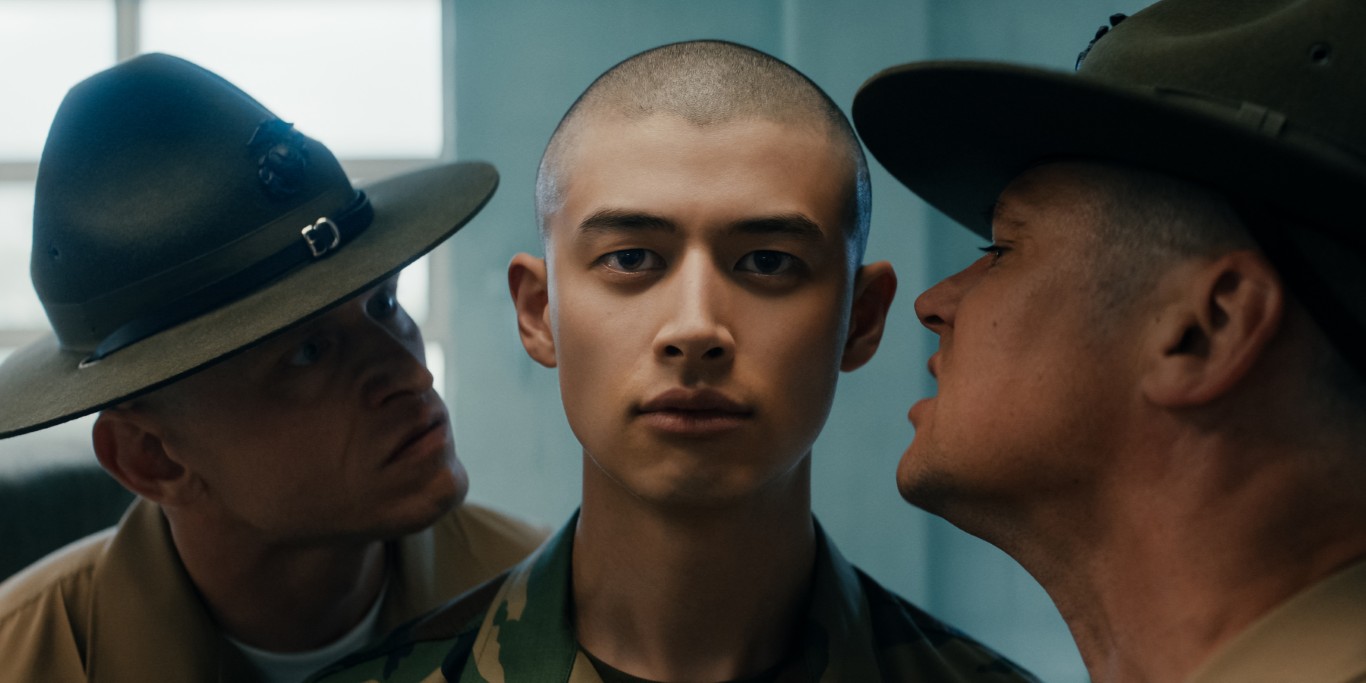
"Though dressed alike, Cope's concealed persona is blunt, witty, and encouraging, while the Cameron the outside world sees is scared, a little slow to react, and genuinely thought the Marine Corps would be like summer camp. "When we said we needed a change," inner-Cam tells outer-Cam wryly, as they sit on their bunk bed, trying to catch their breath from intense exercises, verbal assaults, and constant threats of physical violence, "I meant San Francisco, or New York. But this is nice too!""
"Inspired by The Pink Marine, Greg Cope White's memoir of enlisting and serving as a Marine hiding his sexuality, the series makes edits to White's story in order to tell Cameron's. White enlisted in the 1980s; Cameron joins, along with his best friend Ray (Liam Oh), in the year 1990, hoping to take advantage of the Marines' so-called " buddy system.""
"The story also delves into the backgrounds of all the other boys-for they are truly boys, with still-developing frontal lobes-joining the platoon, including twins John (Blake Burt) and Cody (Brandon Tyler Moore), whose determination to succeed in the Marine Corps is a goal borne from two traditions: horrific lifelong abuse and family enlistment since the 1860s. Eduardo (Jonathan Nieves) is a sweetheart greatly missing his sweetheart, Gloria, and is determined to succeed as the man she deserves."
An 18-year-old recruit, Cameron Cope, endures isolating and brutal Marine Corps basic training while privately conversing with a concealed, queer persona that offers wit and encouragement. The story draws inspiration from Greg Cope White's memoir The Pink Marine but alters chronology and details to center Cameron's experience in 1990 alongside his friend Ray. The series profiles other young recruits, revealing backgrounds of abuse, family military tradition, longing for loved ones, and varying responses to extreme stress and cruelty. Themes include concealed sexuality, the psychological toll of military training, survival, and the clash between youthful vulnerability and institutional demands.
Read at Roger Ebert
Unable to calculate read time
Collection
[
|
...
]